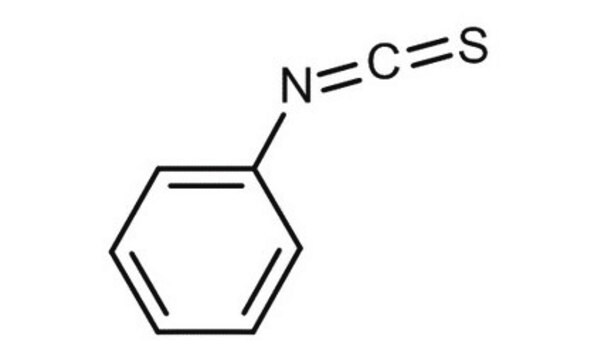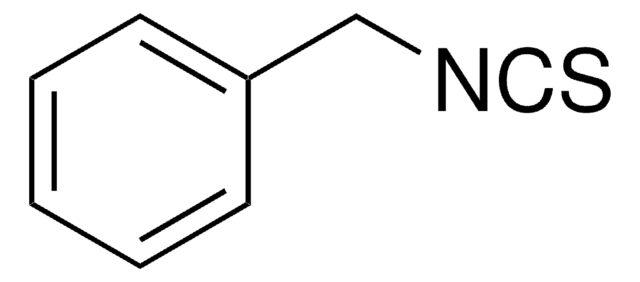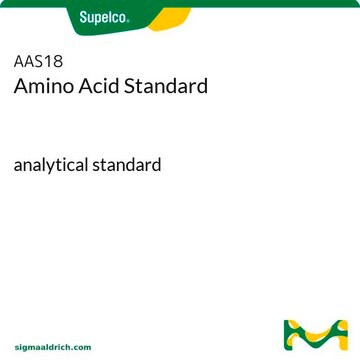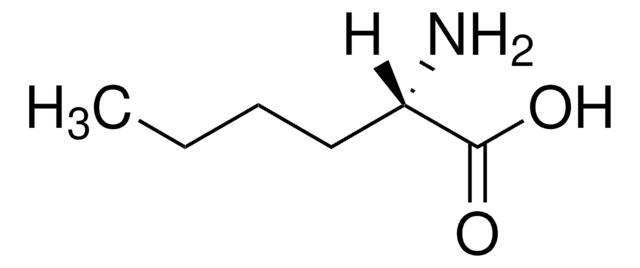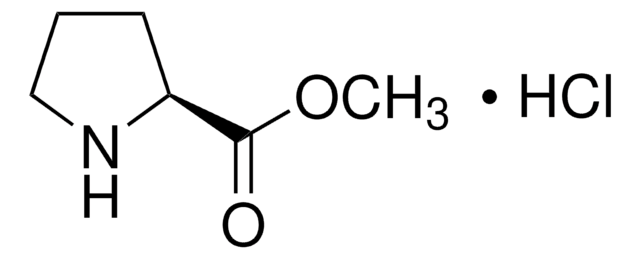P1034
Phenyl isothiocyanate
Sigma Grade, 8.36 M, suitable for solid phase protein sequencing analysis, ≥99% (GC), liquid
Synonym(s):
PITC
About This Item
Recommended Products
grade
Sigma Grade
Quality Level
assay
≥99% (GC)
form
liquid
concentration
8.36 M
refractive index
n20/D 1.6515 (lit.)
bp
218 °C (lit.)
mp
−21 °C (lit.)
density
1.132 g/mL at 20 °C (lit.)
suitability
suitable for solid phase protein sequencing analysis
storage temp.
2-8°C
SMILES string
S=C=Nc1ccccc1
InChI
1S/C7H5NS/c9-6-8-7-4-2-1-3-5-7/h1-5H
InChI key
QKFJKGMPGYROCL-UHFFFAOYSA-N
Looking for similar products? Visit Product Comparison Guide
Related Categories
General description
Application
Packaging
Ten mL size packaged in screw cap amber vials under argon.
signalword
Danger
hcodes
Hazard Classifications
Acute Tox. 3 Oral - Resp. Sens. 1 - Skin Corr. 1B - Skin Sens. 1
Storage Class
6.1A - Combustible acute toxic Cat. 1 and 2 / very toxic hazardous materials
wgk_germany
WGK 3
flash_point_f
190.4 °F - closed cup
flash_point_c
88 °C - closed cup
ppe
Faceshields, Gloves, Goggles, type ABEK (EN14387) respirator filter
Choose from one of the most recent versions:
Already Own This Product?
Find documentation for the products that you have recently purchased in the Document Library.
Customers Also Viewed
Our team of scientists has experience in all areas of research including Life Science, Material Science, Chemical Synthesis, Chromatography, Analytical and many others.
Contact Technical Service

